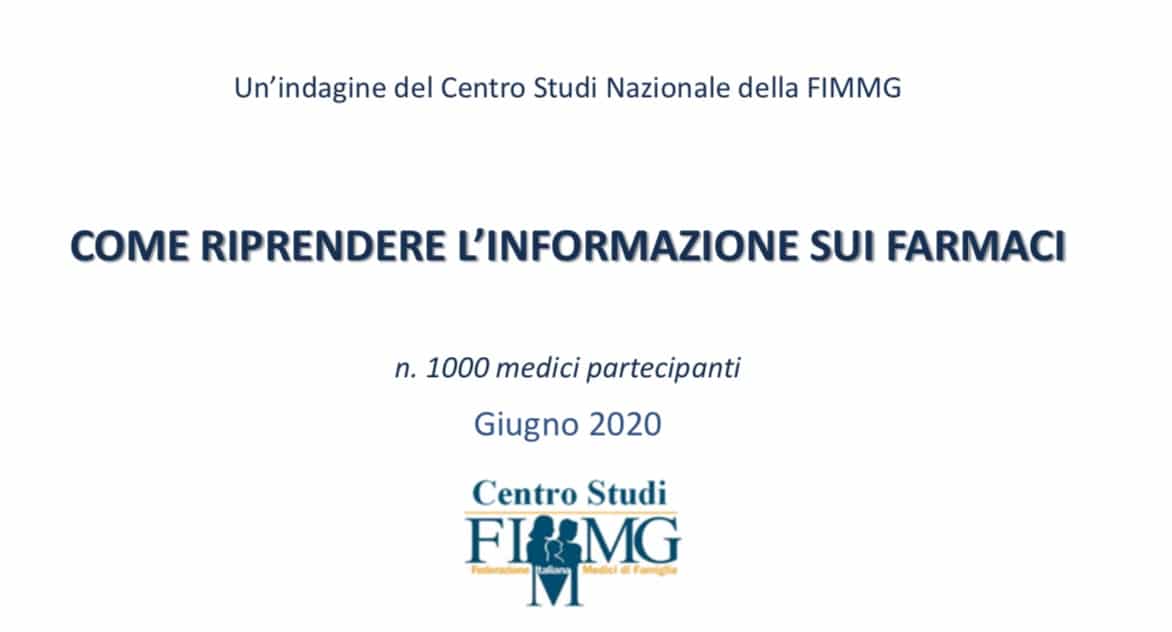The period of health emergency we are experiencing has also overwhelmed the usual attendance of medical offices by Pharmaceutical Representatives (ISF), depriving the doctor of the opportunity to be updated in this area and producing difficulties and uncertainties.
COMMENTS
The vast majority of the sample reports that the channel through which they mainly obtained information on drugs was that of the ISF's office access (83%); below are mentioned i
- The access method used up to now for the ISFs has been the one by appointment during the study activity for 42% of the interviewees (mostly in the North, 45%, compared to the Center and the South, 43% and 38%); free access without an appointment for 31% (mainly in the South, 43%, vs. the Center and the North, respectively 34% and 24%). Only one 24% of the sample reports reserving an access with an appointment at dedicated times of the week (28% in the North, 21% in the Centre, 17% in the South).
The sample reports that he would prefer to maintain, starting from the next few weeks, a traditional modality with access to the ISF with an appointment during the study activity (40%; in particular in the Center and the South, 44%) or at dedicated times of the week (36%); the 25% also identifies as a training possibility the attendance of Seminars via the WEB, access to portals and/or information services offered by the Companies (26%), or to
- StThe possibility of inserting scientific information on the drug in paths that can recognize its value in the context of the ECM would certainly be welcomed; the 86% of the sample answers this affirmatively, especially in the South where the 91% of the sample agrees.
Equally positive is the response towards the hypothesis of using spaces dedicated to the relationship with a specific GP on platforms managed by General Medicine: the 70% of the sample answers definitely/probably yes, in
- The 38% of the sample believes that the Physician-PSI relationship should be extended to other communication channels, even if maintained in his personal relationship; the 26% thinks that it should be remodulated only in the different organization of the times of the visits; the 11% which can remain substantially unchanged as traditionally conducted. One 17% of the interviewees believes instead that both the organization of times and the methods of managing the relationship need to be profoundly revised. Completely replaced by other modes of information reporting, it should be for the 8% of the sample.
Totally unwelcome (88% of the sample) the information-oriented telephone contact appears
- The survey clearly shows that doctors are ready to reopen access to the study to the ISF in ways they deem most appropriate for the 84% of the interviewees, especially in the South (87%) of the country.
From the survey it emerges clearly how the GP has maintained over time a solid and profitable relationship with the update on medicines through the figure of the ISF.
- The doctor does not intend to give up this relationship, which is also strong from a personal point of view.
- The health emergency we are experiencing evidently requires a remodulation of this relationship as well; the GP is ready to adapt the modalities of attending the ISF in his own practice, also considering the possibility of activating alternative and advanced contact systems which allow the personal relationship to be kept active in any case.
How_to_get_the_information_on_the_drug
